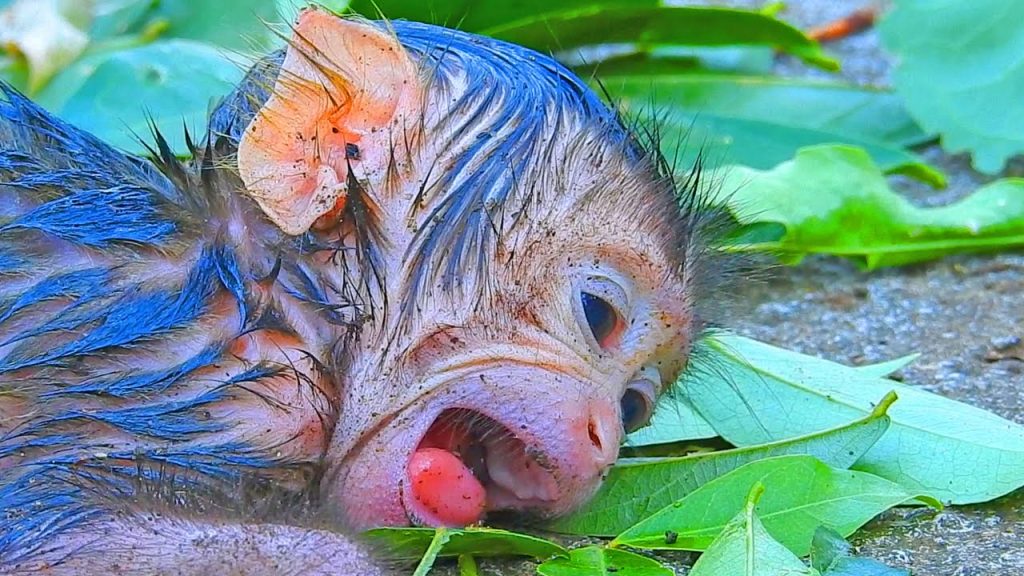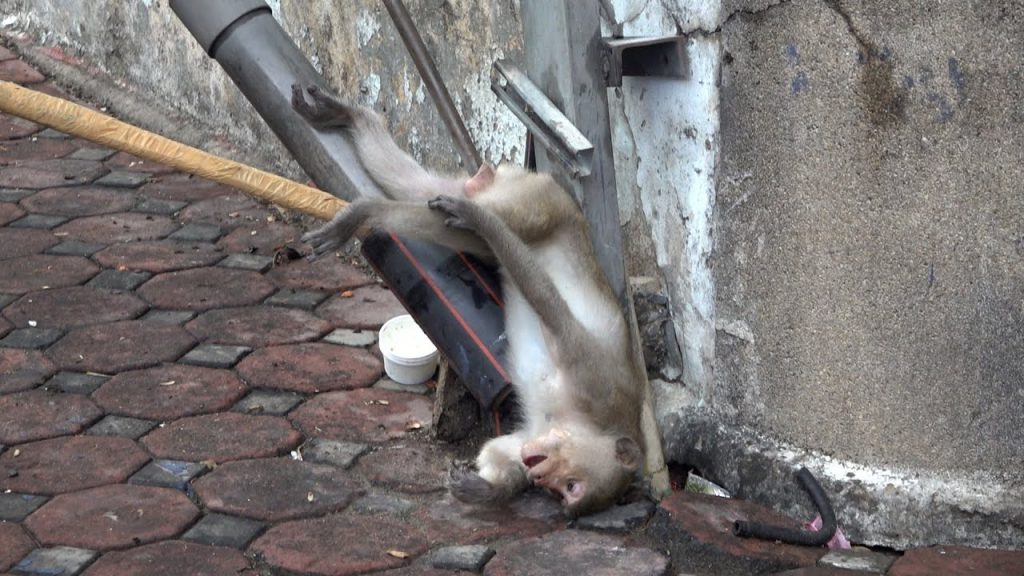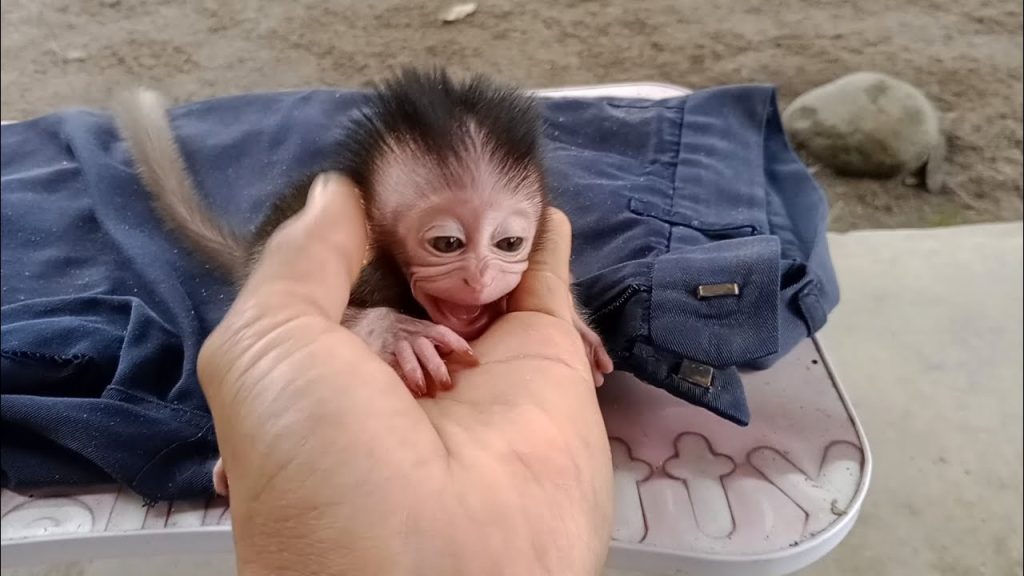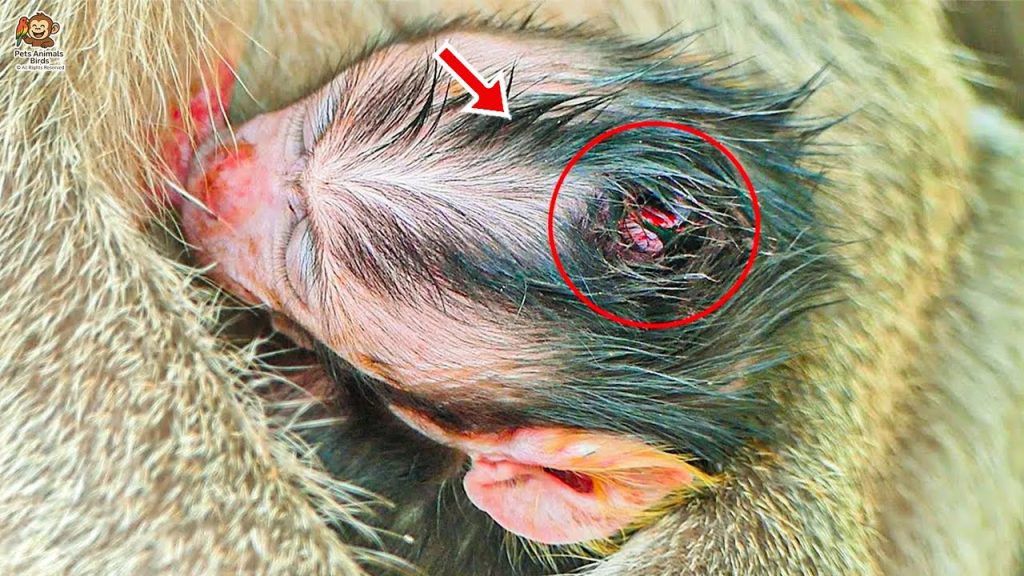
In the wild, the bond between a mother and her infant is essential for survival, especially in primates. Newborn monkeys, like human infants, rely completely on their mothers for food, warmth, and protection. When a mother monkey abandons her baby, the consequences can be devastating—emotionally and physically. One of the most heart-wrenching sights in nature is a newborn monkey crying after being rejected or left behind by its mother. This moment captures the raw emotion of vulnerability and the importance of maternal care in the animal world.
Newborn monkeys cry instinctively when they feel fear, hunger, or loneliness. Crying is not just a sound; it is a distress signal, a biological plea for help. When a mother monkey walks away and does not respond to her baby’s cries, the infant can experience intense emotional distress. Observers have documented such instances in both the wild and in captivity. The baby monkey may cling to the ground or a tree root, emitting soft, desperate whimpers or louder screams that echo with fear and confusion.
There are many reasons a mother monkey might abandon her baby. Sometimes the infant is too weak or sick to survive, and the mother instinctively knows it. In other cases, young or inexperienced mothers may not have developed the maternal instincts needed to care for their offspring. Environmental stress, food shortages, or illness can also lead to rejection. Whatever the cause, the outcome is often the same: the infant is left to fend for itself, a nearly impossible task for a newborn.
The psychological toll of abandonment on a baby monkey is significant. Like humans, primates form early attachments that are crucial to their emotional development. When those bonds are broken, the infant may suffer from stress, anxiety, and trauma. Long-term studies of orphaned monkeys show that they often grow up with behavioral issues, including aggression, fearfulness, and difficulties interacting with others in their group. Without the comfort and guidance of a mother, the young monkey is left with a deep emotional scar.
Despite the sadness of such events, they remind us of the complex emotional lives of animals. Monkeys are not just instinct-driven creatures; they feel pain, loss, and longing. Their cries are more than sounds—they are expressions of grief and desperation. These moments can inspire empathy in humans and strengthen our understanding of the emotional world of animals.
In some cases, humans or other monkeys intervene. In sanctuaries or wildlife rescue centers, orphaned monkeys are sometimes adopted by surrogate mothers or cared for by humans. While this cannot replace a biological mother, it can offer the infant a second chance at life and healing. These acts of compassion highlight the power of empathy across species.
In conclusion, the image of a crying newborn monkey after being abandoned by its mother is a powerful reminder of the importance of care, love, and emotional connection in the animal kingdom. It also challenges us, as humans, to treat all creatures with kindness and respect, recognizing the depth of their emotional lives.


